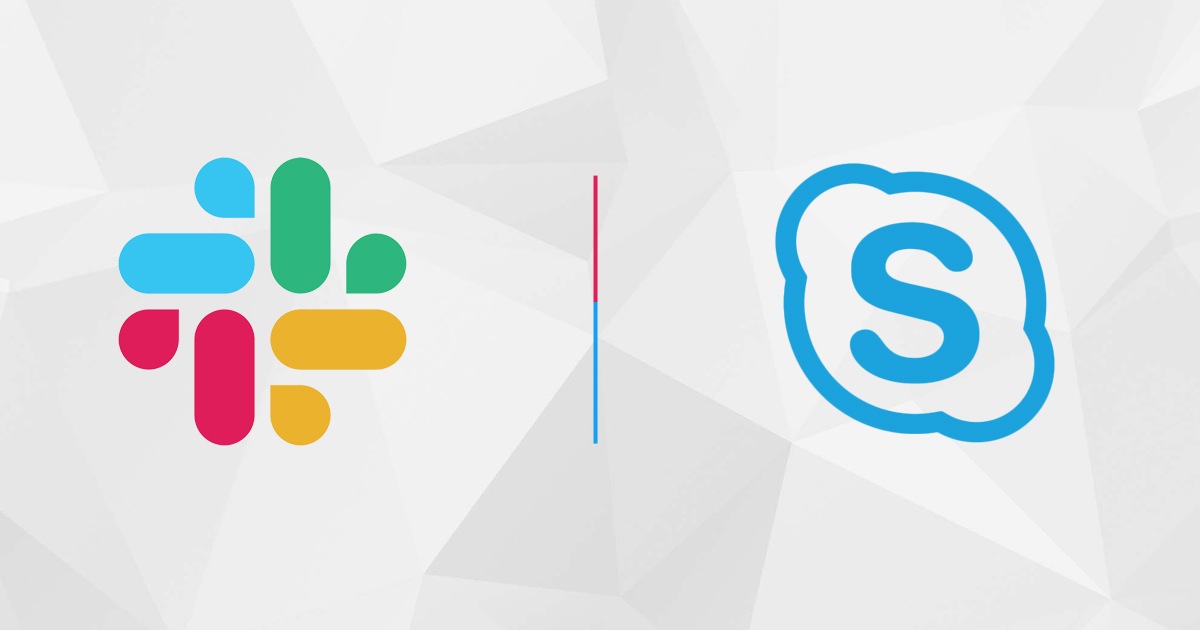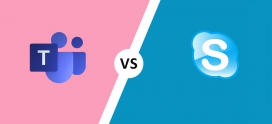
Slack vs Skype for Business – What Should You Choose for Business Communication?
If you are searching for an effective collaboration software, you probably would have compared Skype for Business vs Slack to determine what would serve your business. Let’s go into the background of the products.
Microsoft acquired Skype Communications S.A.R.L, the parent company that offered Skype, in 2011. This was presumably as part of the tech giant’s efforts to step up their presence in the VoIP industry. However, Microsoft came up with its in-house office communications platform and called it – Microsoft Teams. As Microsoft is retiring Skype for Business in 2021, users have been advised to move to Microsoft Teams. Skype for Business will be eventually phased out.
Both Microsoft Teams, as well as Skype for Business, face a competent rival, Slack. In simple words, Slack is a fancy-looking chat box with slicker features. It is a great tool for personal communication, often compared to personal messaging apps like WhatsApp.
Compared to Skype for Business which was released in 2015 and Microsoft Teams which was released in 2017, Slack has been around since much longer (2013).
Having said that, when it comes to office communication, Skype for Business and Slack are two of the most used collaboration software in business. We will look into the comparison between Skype for Business and Slack, and determine pros and cons of both the products:
Product comparison
Ever since its acquisition in 2011, Skype was available with Office 365 plans. Hence, when purchased as a part of Office 365 package, Skype for Business was virtually free of cost. Skype for Business is also available as a standalone plan, apart from being bundled in any Office 365’s Enterprise or Business plans.
Slack is a full-fledged software developed by Slack Technologies. Unlike Skype, it is not offered as a part of any greater product. But Slack offers a free version with limited features. Slack’s paid versions are: Slack Standard and Slack Plus.
Skype for Business is a simple-to-use product focusing on core qualities of collaboration. Microsoft’s stringent security parameters are applied to Skype. Slack, on other hand, comes with all the bells and whistles comparable to any social network, which may take out the simplicity of use. Comparatively, Slack is a complex tool than Skype for Business.
Pricing comparison
Is Skype for Business free? As mentioned earlier, Skype for Business can either be purchased separately as a standalone application or with the bundled Office 365 plans. Microsoft has stopped offering new SKUs for Skype for Business and diverts them to Microsoft Teams.
When it comes to pricing, Skype for Business Plan 2 allowed both video and audio calling for up to 250 people. The said plan was available at $5.5 per month per user.On the other hand, Slack Plus is available at $5 per user per month and allows group video and audio calling for up to 15 participants only.
From the pricing perspective, Office 365 Skype for Business (Now Microsoft Teams) comes with an advantage over Slack, because just for an additional $0.50 per user per month, users can connect with as many as 250 people over both video and audio compared to Slack’s 15.
Feature comparison
Since Skype for Business comes with Office 365, it offers a comprehensive suite of productivity and collaboration tools such as Word, PowerPoint, Excel, Outlook, SharePoint which seamlessly integrate with Skype for Business. Microsoft’s ecosystem makes it easier to navigate through your day-to-day productivity tools. For example, you can create a Microsoft PowerPoint presentation and upload it while video calling someone over Skype for Business. Then, pull up a whiteboard to explain that concept. Obviously, Slack lacks the features of Microsoft’s integrated ecosystem. But Slack can be used alongside third-party applications including Salesforce, GitHub, Google Apps, Zoom, Dropbox, and more.
It is be noted that that while Slack relies on third-party vendors (such as Google, GitHub, and Dropbox) for added functionality, Skype for Business was fully integrated with other managed in-house Office 365 products.
So…what’s better – Skype or Slack?
Both Skype for Business and Slack are popular tools for collaboration and communication. Both cater to users in their own way. Slack is designed to be a trendy and contemporary collaboration software with nice aesthetics. Skype for Business is your simple, classy, and elegant software that always works when everything else fails.
So, what’s the verdict? If we have to pick one, here’s what we’ll say:
Younger workers who grew up in the social media world may prefer Slack. Experienced professionals looking for integration with their existing business applications will find Skype for Business or Teams more productive.



